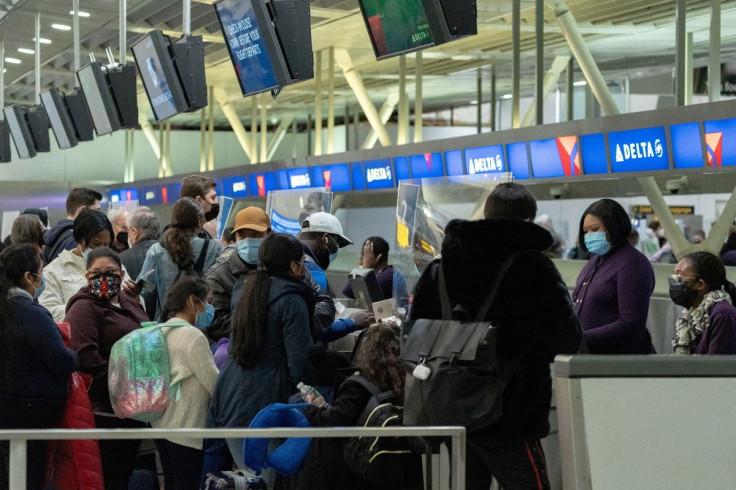U.S. Warns Airlines It May Issue Regulations Barring Child Seating Fees

The U.S. Transportation Department on Friday https://www.transportation.gov/individuals/aviation-consumer-protection/family-seating/June-2022-notice warned airlines it may issue regulations prohibiting them from charging extra fees to allow young children to sit next to accompanying family members.
The agency, citing a 2016 law that required it to review U.S. airline family seating policies, issued a notice urging airlines to ensure children age 13 or younger are seated next to an accompanying adult with no additional charge to the maximum extent practicable, and said it could take regulatory action later this year after it reviews airline policies.
The Transportation Department said it has received few complaints about the issue but said "even one incident is one too many."
It added that airlines should implement policies enabling workers "to make immediate adjustments as needed to ensure young children are able to be seated adjacent to accompanying adults" but are not required to provide seats that would result in an upgrade.
The agency said airlines using seat blocking should monitor its ability to ensure adequate numbers of seats are blocked to meet demand for adjacent seats for passengers traveling with young children.
Last month, the department noted that U.S. consumers lodged more than quadruple the number of complaints against U.S. airlines in April compared with pre-pandemic levels.
Travelers are facing a difficult summer as airlines face near-record demand and as they rebuild staff levels after thousands of workers left the industry during the COVID-19 pandemic. Air passengers are facing long lines, crowded airports and few open seats.
Airlines for America, a group representing Delta Air Lines, United Airlines, American Airlines and others, said, "U.S. airlines have always worked to accommodate customers who are traveling together, especially those traveling with children, and will continue to do so. Each carrier sets their own policies that fit individual business models."
The Transportation Department plans to propose formal rules https://www.reginfo.gov/public/do/eAgendaViewRule?pubId=202204&RIN=2105-AF04 by August codifying requirements airlines provide prompt refunds when carriers cancel or make a significant change, including when tickets purchased are non-refundable.
It also plans to issue rules requiring detailed fee disclosure for baggage, cancellation and family seating costs at time of purchase and to issue final rules requiring passenger airlines to refund fees for bags that are significantly delayed and refunds for services like onboard Wi-Fi that do not work.
© Copyright Thomson Reuters 2024. All rights reserved.





















